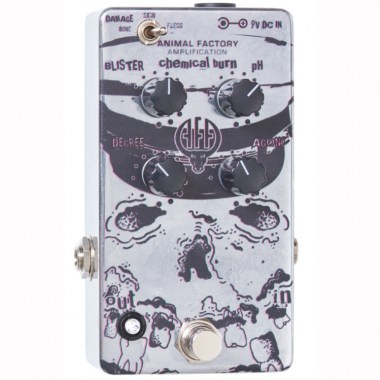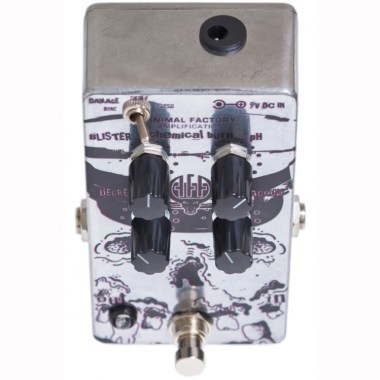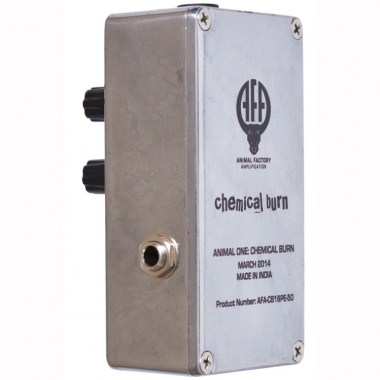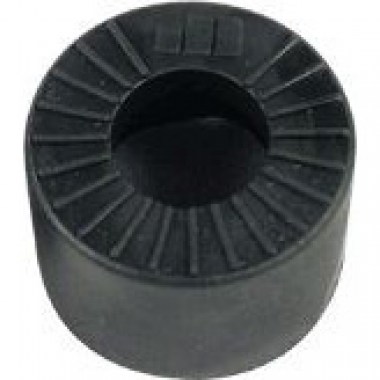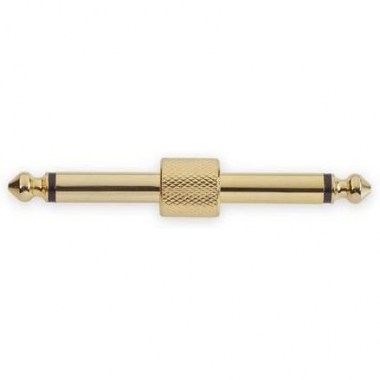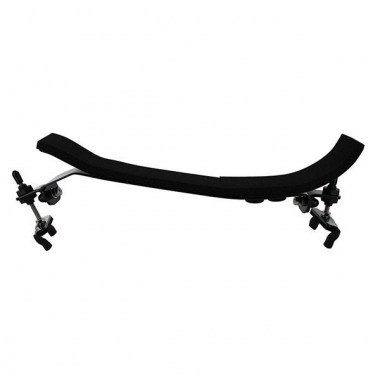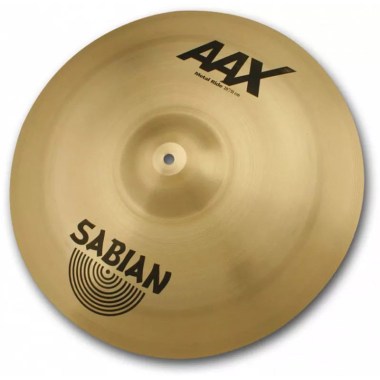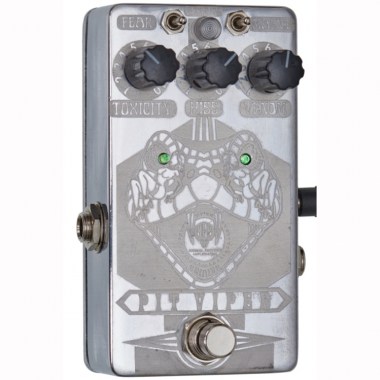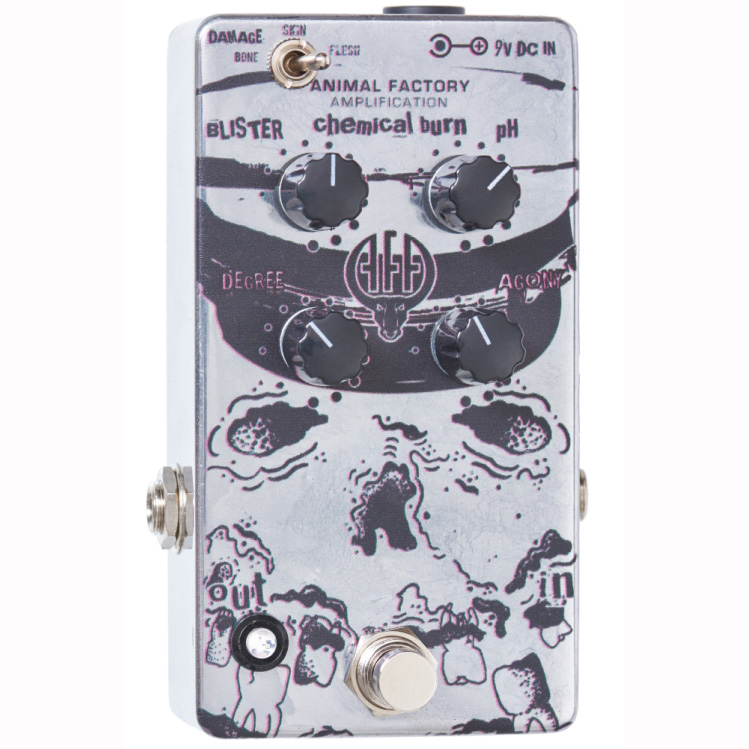 Купить Оборудование гитарное Animal Factory Pedal Chemical Burn
Купить Оборудование гитарное Animal Factory Pedal Chemical Burn Логин или Создать аккаунт
Animal Factory Pedal Chemical Burn
ПроизводительAnimal Factory
Доступность:на заказ
Артикул:572442
20950 Р
Animal Factory Pedal Chemical Burn Оборудование гитарное Animal Factory Pedal Chemical Burn Вы можете купить по выгодной цене в наших музыкальных магазинах в Москве и Санкт-Петербурге, интернет-магазин, доставка по России.
Этот товар поставляется на заказ. Уточним доступность или предложим замену!
Описание
The Chemical Burn is a take on a juggernaut of 60s fuzz sound - the Shin-ei/Companion Superfuzz FY-6. Chemical Burn is an almost-faithful reproduction of this classic, with a few modern twists that make it more usable and versatile and add new operation modes to this classic circuit. The basis of operation remains the same.
If you're looking for a subtle fuzz that cleans up well when you back off the volume control, you're clearly in the wrong place.
Controls:
DAMAGE: This 3-way switch controls the amount of octaving / fundamental cancellation:
SKIN - The fundamental at its maximum/least octaving. “Trails” on fast decay notes.
FLESH - Some cancellation and octave. Some “trails” possible.
BONE - Maximum octave mix, like the stock FY-6 Superfuzz.
STATUS/MODE LED: The colours display the DAMAGE mode: BLUE - Skin RED - Flesh GREEN-BLUE - Bone
BLISTER: Mixes between silicon (counter-clockwise) and germanium clipping (clockwise) which lend a different character to the overall fuzz sound.
Intermediate settings will lift the clipping and greatly increase output volume.
DEGREE: The fuzz or gain knob. Turning it up increases the overall gain and distortion. Lower gain settings will cause gating to kick in earlier.
pH: An unconventional but effective tone knob. Turning it counterclockwise, the mids are very scooped. Turning it clockwise flattens out the mids for morec onventional fuzz sounds.
AGONY: While it mainly functions as the volume knob, it also contributes to final stage gain. Play with the DEGREE and BLISTER knobs to find interesting gain/volume settings.
Power: 9-12V DC, 100 mA, uses a 2.1 mm DC jack with negative center (Boss-style pedal standard power supply)
Input Impedance: nom. 100k?, output Impedance: nom. less than1k?

